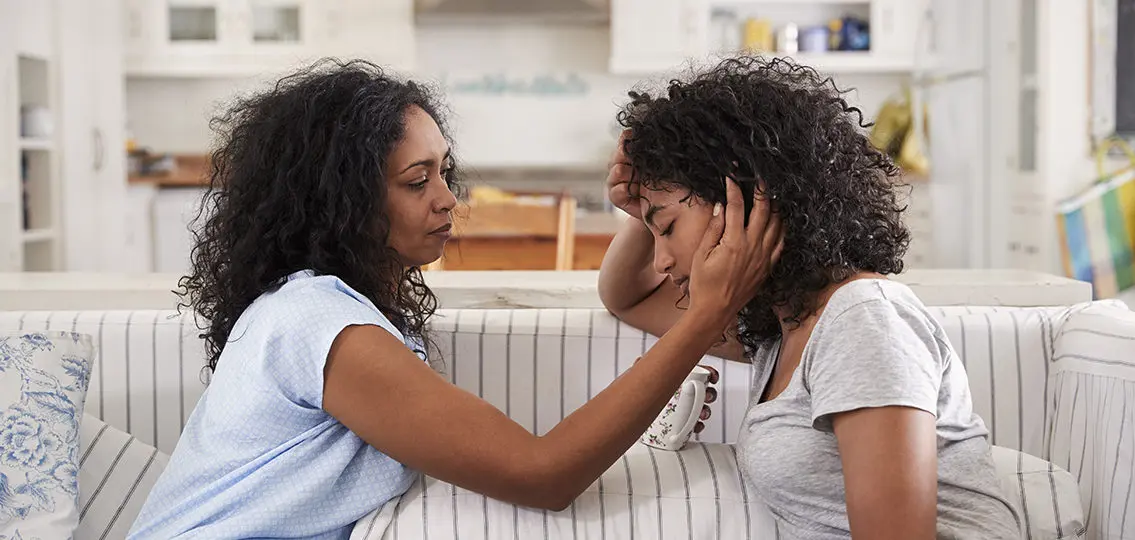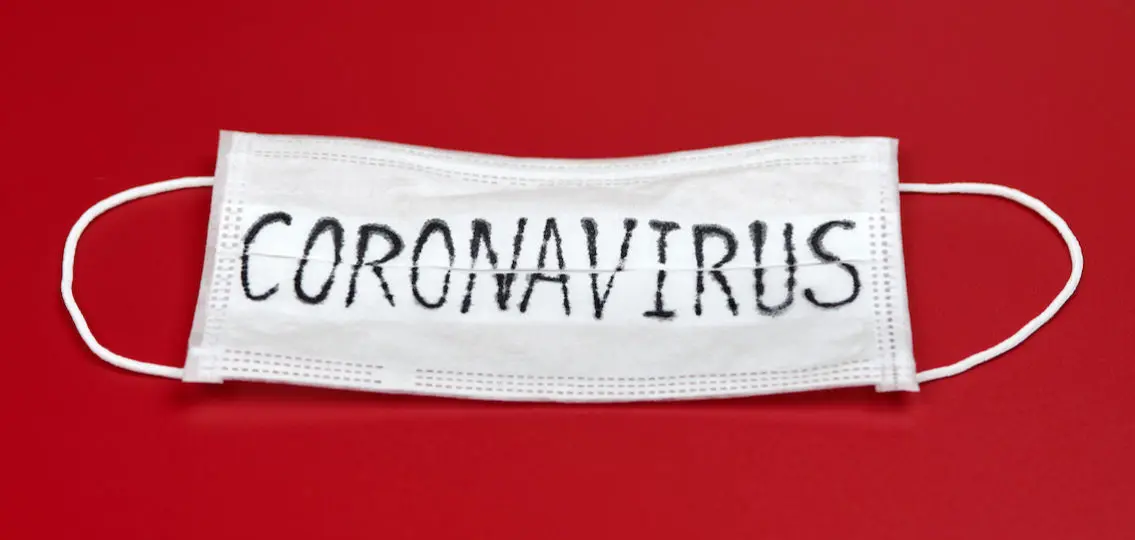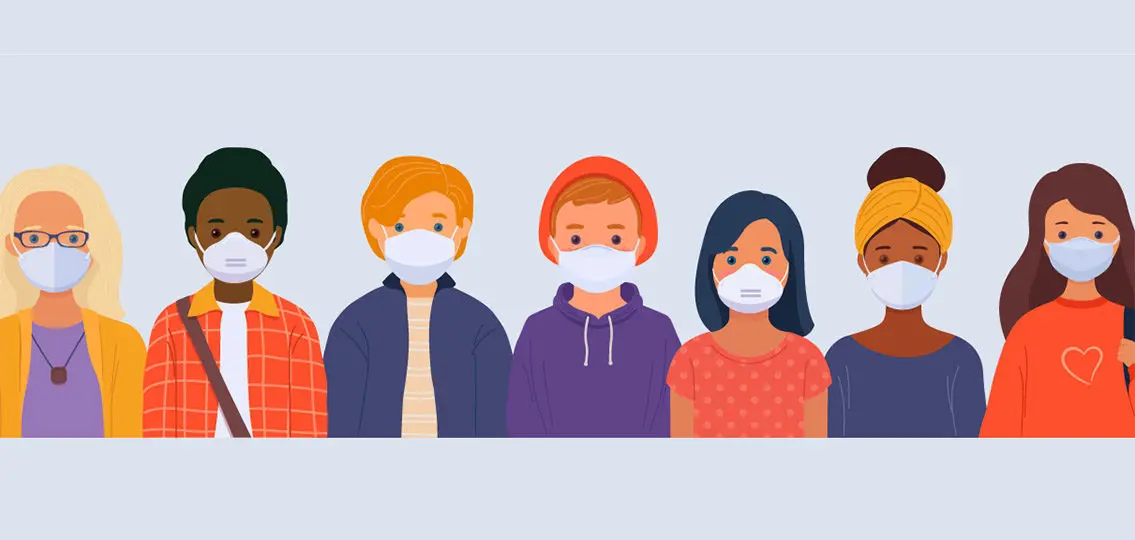What happens when a teen feels one way about a particular issue or problem and the parent has a very different take? At Your Teen, we understand that sometimes you need to look at a problem from multiple perspectives. Hearing from a neutral third party also helps. So we bring in a parenting expert to provide the practical advice you need to bridge the divide and help restore harmony. Here, a teen misses her friends but her mother worries about her daughter’s safety.

TEEN | Lena Kalandjian: I Miss my Friends!
The last time I’ve really hung out with my friends was spring break in the first week of March. The following Monday I was supposed to go back to school. As you probably guessed, school was canceled, and we ended up never going back. For the rest of the school year, I was stuck in my house with nothing but FaceTime and social media as a means to contact my friends. I thought for sure that the pandemic would calm down during summer, but I couldn’t have been more wrong. It has only gotten worse and worse, with over 500,000 recorded cases in my region.
While I know it is dangerous and the stakes are high, I miss my friends.
It wasn’t so bad in the beginning; all of my friends and I were on full lockdown together. But once summer began, everyone started acting like the pandemic didn’t exist and would hang out like normal. My friends were out on their boats, having sleepovers, going out to lunch, and more. Meanwhile, I was stuck in full quarantine.
I understand my parents’ concern, but I am 16 years old and I had high hopes for my summer. For the first time ever, all of my friends can finally drive. We were supposed to be hanging out at the beach, having sleepovers every weekend, and driving around until dark. I know things don’t always go according to plan, but it doesn’t seem like this virus is going anywhere anytime soon. I can’t spend my last two years of high school cooped up in my house while the rest of my friends are out making memories.
I’ve been invited to hang out with my friends for backyard get-togethers, birthday parties, and more, but I haven’t ever been allowed to go.
I really do understand the concern, but what I don’t understand is why I am not allowed to go to a backyard, outdoor hangout where there will be social distancing. I don’t understand why I’m not allowed to order food from restaurants or even see my friends normally if I know that they have been safe.
I’m one of the only students I know opting out of the blended-learning model for school, which seems a little bit overprotective on my parents’ part. My parents have expressed that the virus is so unpredictable that we shouldn’t be taking any chances if they are not absolutely necessary. But I feel like my youth is fleeting. I haven’t made any of the fun memories I am supposed to be making at 16 years old.
Lena Kalandjian is a junior at North Broward Preparatory school. She lives in Parkland, Florida.
PARENT | Tracey Kalandjian: I Know My Daughter Misses her Friends, But . . .
I am a mother of four teenage girls who have spent months at home in quarantine. We know our daughters want to be, and should be, with their friends right now. We know they miss their friends. It is normal and healthy for their development for them to be around their friends, and we understand that.
Unfortunately, as a parent, it is our responsibility to make the tough decisions in order to do what is best for our children. At this time, their health is our number one concern. My husband and I decided together to keep them safe at home away from any potential risk, isolated from the rest of their friends.
While I know doing school from home is not ideal, and not being able to carry out normal teenage activities can be frustrating and difficult, we believe that staying home is the safest option right now.
At this point, there are just too many unknowns. There is no way to trace contact from person to person, so for all we know anyone could have this virus. Servers, cooks, etc. may have been exposed and could be actively transmitting it to customers. We also don’t know where they’ve been and who their friends may have been exposed to.
While there is a lot of testing being done, the results come back way too late to even make them effective. Many kids my daughter’s age are asymptomatic. Even if they think they are not infected, they can still transmit the virus. Additionally, we have family members with underlying medical conditions who may be adversely affected, even if my daughters are not.
New data is published almost every day. Any indoor congregation of people can create an environment where COVID can be transmitted. That’s why even though our school is offering in-person learning, none of my children will be attending any sort of hybrid school option until it is safe to be around others.
The stakes are too high to take a chance.
Until a vaccine is safely available, we are not willing to take these risks, knowing what we know as of right now. If one of my kids were to contract the virus, they would likely be asymptomatic. But scientists are now discovering that there may be longer term side effects such as permanent heart and lung damage that may affect kids as they get older.
We know our kids and trust them to do the right thing. We trust their judgment and we trust them to take the right precautions. But we don’t know if other people are doing the same. We don’t know their friends and acquaintances nearly as well, and we don’t 100% trust that they will follow all of the pandemic protocols. It’s all just too risky, and so far the benefits of going out do not outweigh these risks.
Tracey Kalandjian is a small business owner and the mother of four girls in Parkland, Florida.
PRO | Lynn Adams, Ph.D.
Wow. Lena and Tracey have already hit all the high points of family conflict resolution: clear communication, mutual respect and trust, and emphasis on points of agreement. They’ve also identified some clear points of dispute. The only thing missing is flexible problem solving. Maybe that’s where I come in.
The coronavirus response has all the ingredients for family conflict with teens. Consequences are long-term and often abstract. Different families respond in different ways, and everybody knows it because they communicate constantly. Official restrictions are in flux and often in dispute. And the part of teen life that’s most fleeting, most precious, seems to hold the most danger: spontaneous gatherings in large groups.
Lena isn’t just worried she’ll miss out. She knows she’s been missing out for months. And she really misses her friends. Tracey isn’t just worried about the parts of teen life she can’t control. She knows that even if Lena follows the family’s agreed precautions, she could still be at risk because of others’ behavior.
But here’s the bit that’s ripe for some flexible problem solving.
Lena wants to socialize safely, and Tracey wants to trust those with whom Lena would socialize. Remember back in April, when lots of people were spraying their groceries with bleach and leaving them outside for the day? Most people aren’t doing that anymore. Given that with each passing month we know more about how the coronavirus is transmitted, it might be time to revisit the family’s stance on socializing.
As Tracey points out, it all comes down to a comfortable risk-benefit balance.
Is there a new level of social contact that fits the family’s safety needs? We know which social behaviors hold the lowest risk. Consider those. Keep in mind, though, four daughters means four times the contacts.
Now, about trust. Does Lena have some friends Tracey could get to know better? Could she develop the trust she’d need in order to widen Lena’s social circle, even a little?

As Lena points out, the coronavirus is a longer-term problem than we initially thought it would be. As we learn more about the danger we face, time allows us to adjust our responses. Maybe that means a specific activity with a specific friend, even before a vaccine is available. Maybe it doesn’t, or maybe not yet. That’s for this family to decide.
I think they’re up to the challenge.
Lynn Adams, Ph.D., is a child psychologist living in New Orleans. She’s published articles about parenting as a psychologist in the Washington Post and other outlets. Find more of her work at www.lynnadamsphd.com.




